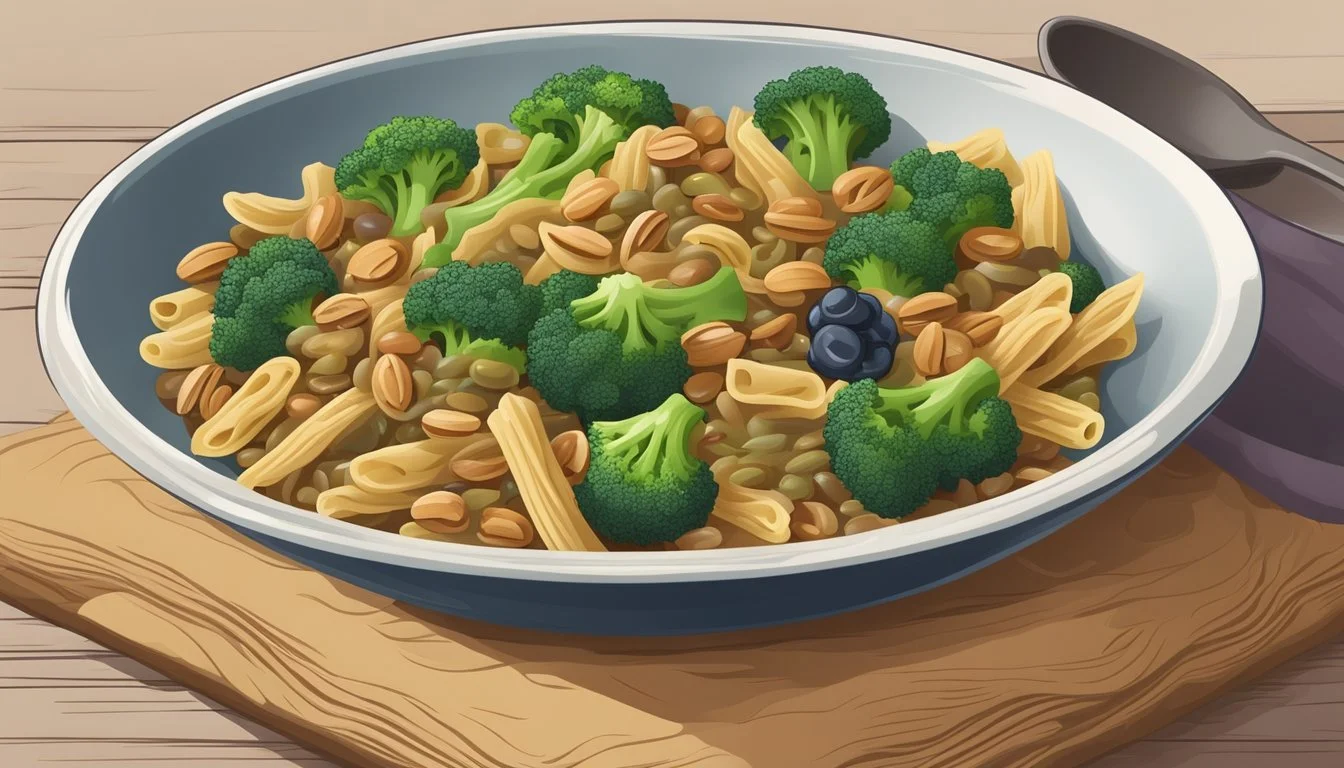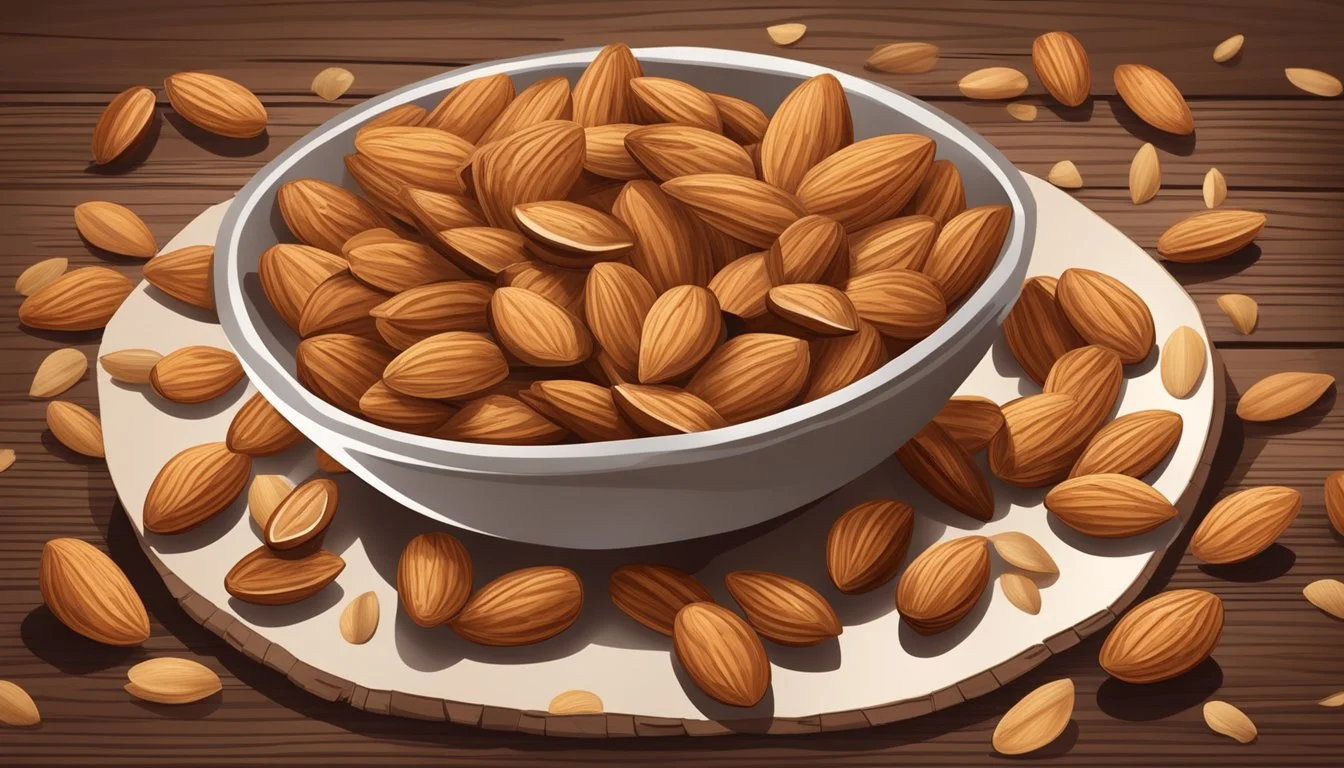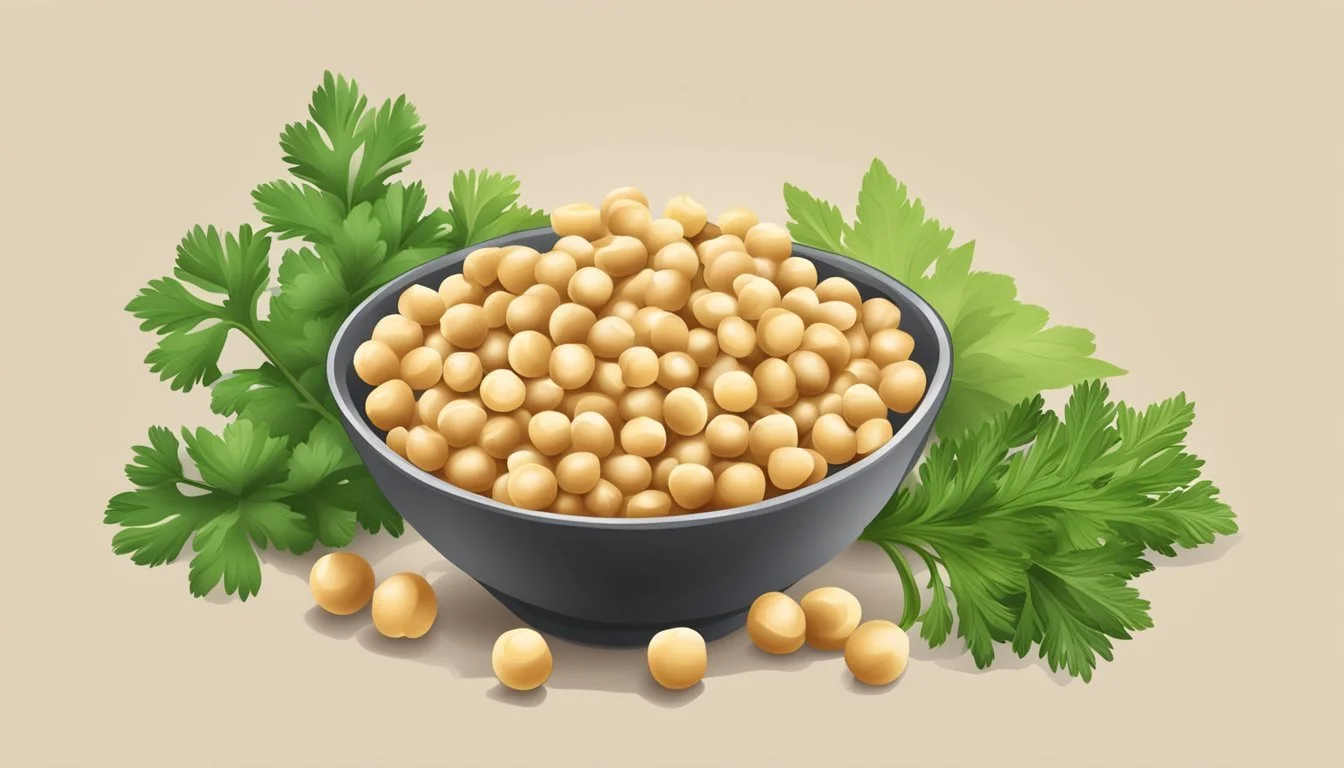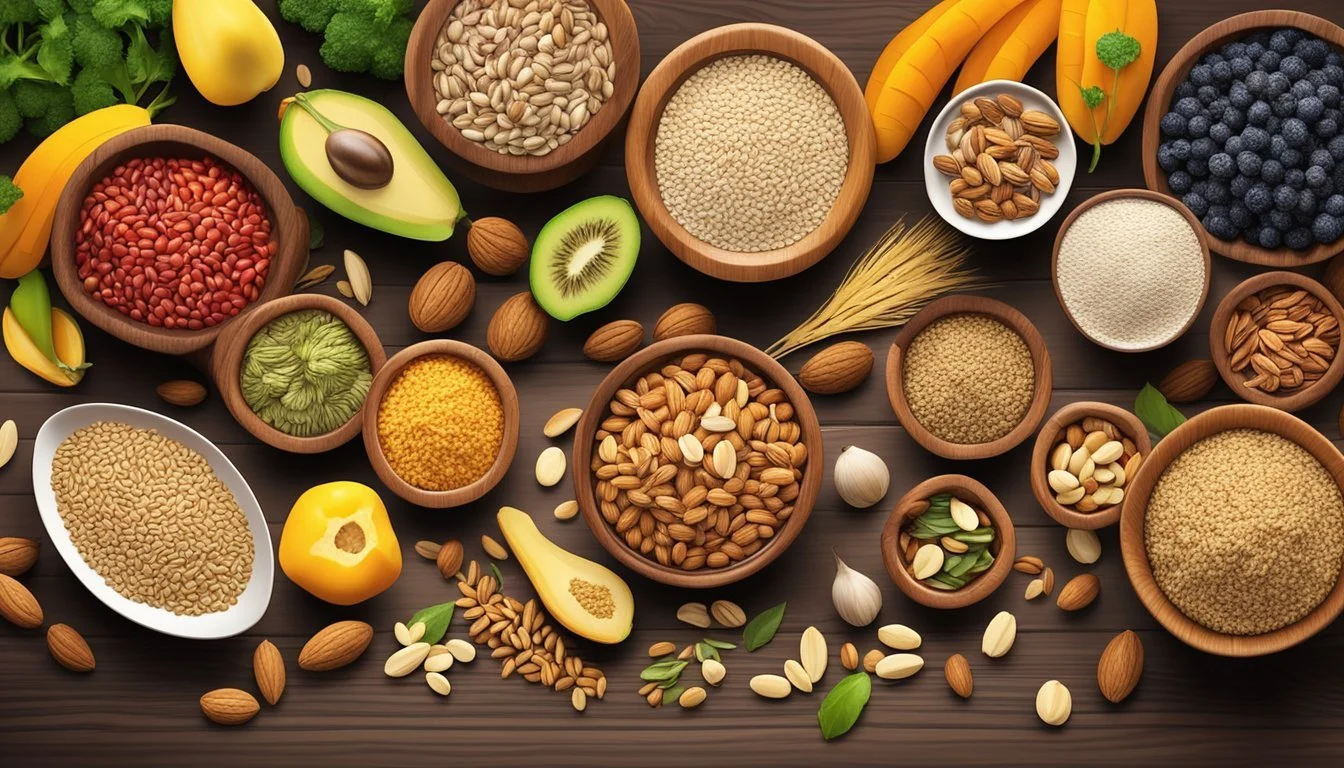Top 15 Foods Rich in Insoluble Fiber for Digestive Health
Essential for Digestive Health
Insoluble fiber plays a critical role in maintaining digestive health. This type of fiber, which does not dissolve in water, aids in the efficient movement of food through the digestive system and adds bulk to the stool. Eating foods rich in insoluble fiber is essential for preventing digestive issues such as constipation and promoting overall colon health.
In addition to digestive benefits, insoluble fiber is linked to a reduced risk of certain chronic diseases. By incorporating high-fiber foods into their diet, individuals can achieve a more balanced and healthful lifestyle. Understanding which foods are high in insoluble fiber can guide better dietary choices for those looking to improve their gut health.
1) Bran Cereal
Bran cereal is a well-known source of insoluble fiber. Made from the outer layer of grains, it retains a significant amount of dietary fiber that aids in digestive health.
One of its primary benefits is promoting regular bowel movements. This makes it a popular choice for individuals looking to improve their gut health.
Bran cereal often includes ingredients like wheat bran or oat bran. Both of these components are rich in fiber.
In addition to fiber, bran cereal provides essential nutrients such as vitamins and minerals. These can contribute to overall nutritional intake.
Including bran cereal in daily meals is straightforward. It can be consumed with milk or yogurt for breakfast or as a topping for other dishes.
2) Whole Wheat Bread
Whole wheat bread is a notable source of insoluble fiber.
This type of bread is made from whole grain wheat flour, which retains all parts of the grain, including the bran. The bran is particularly high in insoluble fiber.
Two slices of 100% whole wheat bread can provide a significant amount of dietary fiber.
Insoluble fiber does not dissolve in water and adds bulk to the stool. This helps food pass more quickly through the stomach and intestines.
Whole wheat bread is often enriched with essential nutrients like B vitamins, iron, and magnesium, which support overall health.
When selecting whole wheat bread, check the ingredients list to ensure it is made from 100% whole grain wheat.
This type of bread often contains less sodium and added sugars compared to white bread.
3) Pinto Beans
Pinto beans are a rich source of dietary fiber, particularly insoluble fiber. A half-cup serving of cooked pinto beans provides approximately 7.5 grams of fiber. This high fiber content makes them beneficial for digestive health and helps in maintaining regular bowel movements.
In addition to fiber, pinto beans are also low in fat and calories. They contain no cholesterol and minimal sodium, making them a heart-healthy choice.
Pinto beans have a low glycemic index around 39, indicating a mild impact on blood sugar levels. This makes them suitable for people looking to manage their blood sugar.
Incorporating pinto beans into meals is easy. They can be added to salads, soups, and stews, or served as a side dish. Their versatility and nutritional benefits make them a valuable addition to any diet focused on improving digestive health.
4) Almonds
Almonds are an excellent source of insoluble fiber, making them a beneficial addition to a balanced diet. One cup of almonds provides more than 14 grams of insoluble fiber.
This high fiber content helps promote regular bowel movements and can aid in preventing constipation.
Insoluble fiber in almonds contributes to increased stool bulk, which assists in food passage through the digestive system.
Aside from fiber, almonds also deliver healthy fats, protein, vitamins, and minerals. These nutrients support overall health, although the focus here is on their fiber content.
Incorporating almonds into snacks, salads, or meals can conveniently boost daily fiber intake. Adjust portions as needed based on dietary requirements.
5) Blackberries
Blackberries are rich in insoluble fiber, which aids in digestion by increasing stool bulk. This makes them beneficial for those looking to improve digestive health.
A single cup of blackberries provides 62 calories and 13.8 grams of carbohydrates. They are also an excellent source of vitamin C and manganese, contributing to overall nutritional benefits.
Including blackberries in one's diet may help regulate blood sugar levels and reduce cholesterol. Their high fiber content makes them a valuable addition for those aiming to manage weight and maintain regular bowel movements.
Blackberries can be consumed fresh or added to various dishes such as salads, smoothies, and desserts, making them both a versatile and nutritious choice.
6) Broccoli
Broccoli is a well-known vegetable rich in insoluble fiber. This type of fiber does not dissolve in water and aids in digestion by adding bulk to stool.
Consuming broccoli can help prevent constipation and enhance regular bowel movements. It is also linked to a reduced risk of various digestive disorders.
One cup of broccoli provides a significant amount of dietary fiber, which benefits digestive health. Including broccoli in daily meals can be an effective way to increase insoluble fiber intake.
This vegetable can be cooked or eaten raw, making it versatile for different dietary preferences. It retains much of its fiber content regardless of preparation methods.
Broccoli also offers other nutrients like vitamins C and K, contributing to overall health. Adding it to salads, stir-fries, or soups is an easy way to incorporate more fiber into the diet.
7) Carrots
Carrots are a versatile vegetable popular in many dishes around the world.
Each large carrot contains about 2 grams of insoluble fiber. This makes them an excellent option for those looking to increase their fiber intake.
Insoluble fiber found in carrots aids digestion by adding bulk to the stool and promoting regular bowel movements.
Carrots can be enjoyed raw, cooked, or juiced. Their flexibility in preparation allows them to be included in salads, soups, and as snacks.
Their bright color and crunchy texture make them appealing to both children and adults.
With their ability to improve digestive health, carrots are a nutritious and convenient addition to any meal.
For those seeking a natural way to enhance their diet, incorporating carrots can be a simple and effective solution.
8) Spinach
Spinach is a leafy green that provides a significant amount of insoluble fiber. One cup of cooked spinach contains about five grams of insoluble fiber. This makes it a valuable addition to a diet aimed at improving digestive health.
Insoluble fiber in spinach helps to add bulk to stool and supports regular bowel movements. This can be beneficial for individuals experiencing constipation. Additionally, spinach is low in calories and packed with other essential nutrients, making it a nutritious choice.
Incorporating spinach into meals is easy. It can be added to salads, smoothies, or used as a cooked side dish. The high insoluble fiber content combined with vitamins and minerals makes spinach a versatile and healthy choice for any diet.
In conclusion, spinach offers both nutritional benefits and supports digestion, thanks to its high insoluble fiber content.
9) Lentils
Lentils are a versatile and nutrient-dense legume frequently praised for their high insoluble fiber content. This type of fiber is crucial for digestive health, contributing to regular bowel movements and preventing constipation.
In addition to insoluble fiber, lentils offer soluble fiber, which can help regulate blood sugar levels and support cardiovascular health. This makes them a valuable addition to a balanced diet.
Rich in essential nutrients, lentils provide protein, potassium, and folate. They are also high in plant-based iron and contain beneficial antioxidants known as polyphenols.
Lentils can be easily incorporated into various dishes, from soups and stews to salads and side dishes. Their quick cooking time and ability to absorb flavors make them a popular choice in many cuisines.
Various types of lentils, such as green, brown, and red, can be found in grocery stores. Each variety has a slightly different texture and flavor, allowing for culinary flexibility.
10) Chickpeas
Chickpeas, also known as garbanzo beans, are a versatile legume rich in various nutrients.
They are an excellent source of insoluble fiber, which plays a critical role in digestive health. This type of fiber adds bulk to stool and aids in promoting regular bowel movements.
Each cup of chickpeas contributes significantly to daily fiber intake. In addition to insoluble fiber, chickpeas contain soluble fiber, making them beneficial for heart health.
High fiber content in chickpeas can also help in maintaining a healthy weight by promoting a feeling of fullness. This can reduce overall calorie intake.
Chickpeas provide an array of nutrients, including manganese, folate, and potassium. These nutrients support various bodily functions and contribute to general well-being.
Including chickpeas in a balanced diet can be simple. They can be added to salads, soups, and stews or blended into hummus for a nutritious snack.
Health Benefits of Insoluble Fiber
Insoluble fiber promotes various health benefits including enhanced digestive function, effective weight management, and improved blood sugar control. These advantages make it an essential component of a balanced diet.
Digestive Health
Insoluble fiber adds bulk to stool, which helps food pass more quickly through the stomach and intestines. This aids in relieving constipation and preventing digestive disorders such as diverticulitis. Foods high in insoluble fiber, like whole grains and vegetables, can help maintain regular bowel movements and decrease the risk of issues like hemorrhoids.
Regular consumption of insoluble fiber supports a healthy gut microbiome. It promotes the growth of beneficial bacteria in the colon, which can prevent the overgrowth of harmful bacteria and reduce inflammation. This helps improve overall gut health and function.
Weight Management
Foods rich in insoluble fiber contribute to a feeling of fullness, which can aid in appetite control. By adding bulk to the diet without adding calories, these foods help individuals feel satisfied longer. This can reduce the overall intake of calories and assist in weight management.
Insoluble fiber foods such as nuts, seeds, and vegetables provide a healthy way to manage snacking and portion sizes. They help regulate eating habits by preventing overeating and aiding in the maintenance of a healthy weight.
Blood Sugar Control
Though more commonly associated with soluble fiber, insoluble fiber also contributes to blood sugar regulation. It helps slow the absorption of sugar into the bloodstream, preventing rapid spikes and crashes in blood glucose levels. This can be particularly beneficial for people with diabetes or those at risk of developing the condition.
Including insoluble fiber in the diet may improve insulin sensitivity, which is crucial for managing and preventing type 2 diabetes. Beans, whole-wheat products, and vegetables are excellent sources of this beneficial nutrient, supporting long-term blood sugar stability.
Eating a variety of foods high in insoluble fiber can provide these health benefits, making it a key element of a nutritious and balanced diet.
How Insoluble Fiber Works
Insoluble fiber is a type of dietary fiber that does not dissolve in water. This characteristic allows it to pass through the digestive system relatively intact.
One key function of insoluble fiber is to add bulk to the stool. By increasing stool bulk, it helps to keep bowel movements regular and prevents constipation.
Insoluble fiber can absorb water, making stool softer and easier to pass. This process can lower the risk of colorectal issues, including hemorrhoids and diverticular disease.
Examples of Insoluble Fiber:
Whole grains (wheat bran, brown rice)
Vegetables (carrots, cucumbers, tomatoes)
Nuts and seeds
Insoluble fiber also plays a role in promoting a healthy digestive system by speeding up the passage of food through the stomach and intestines. This can help in reducing the time food remains in the colon, thereby lessening the exposure to harmful substances.
Moreover, insoluble fiber can aid in maintaining healthy body weight by promoting a feeling of fullness, which can reduce overall calorie intake.
Incorporating more foods high in insoluble fiber can contribute to better digestive health and prevention of certain gastrointestinal disorders.
Benefits:
Regular bowel movements
Reduced constipation
Lower risk of colorectal diseases
Understanding how insoluble fiber works can guide dietary choices for improved health and well-being. By selecting foods rich in insoluble fiber, individuals can support their digestive systems effectively.
Recommended Daily Intake
Adults 50 years and younger should aim for 38 grams of total fiber per day for men and 25 grams for women. For those over 50, men need 31 grams and women need 22 grams. These figures include both soluble and insoluble fiber.
For every 1,000 calories consumed, it is advised to get 14 grams of fiber. This guideline helps balance intake based on dietary habits.
Fiber Needs by Age and Gender:
Age Group Men (grams/day) Women (grams/day) Adults under 50 years 38 25 Adults over 50 years 31 22
Children's needs vary slightly, with toddlers needing 19 grams of fiber a day.
Balancing between soluble and insoluble fiber is unnecessary, as long as total intake meets the daily requirement.













